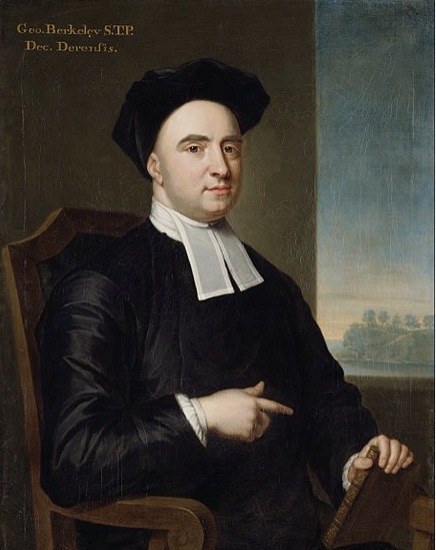
George Berkeley was born on March 12, 1685 in Dysert Castle, Ireland. He entered the Duke of Ormonde’s School in Kilkenny, at age 11 and four years later entered Trinity College, Dublin. He graduated with a B.A. in the spring of 1704 and a Master’s degree in 1707, followed by two years in divinity study after which he was ordained a deacon.
George Berkeley, who later became “Bishop Berkeley,” was one of the three British philosophers of the empiricist school.Along with John Locke and David Hume, he asserted that we gain knowledge through the senses, rather than through innate ideas.
However, Bishop Berkeley is best known to mathematicians for his attack on the logical foundation of Newton’s calculus. In The analyst: or a discourse addressed to an infidel mathematician, published in 1734, he argued that although the calculus led to true results its foundations were as arbitrary as those of religion, declaring,
And what are these fluxions? The velocities of evanescent increments. And what are these same evanescent increments? They are neither finite quantities, nor quantities infinitely small, nor yet nothing. May we not call them ghosts of departed quantities?
It took a century for the next generations of mathematicians to rework Newton’s “fluxions” and put calculus on a rigorous foundation.
